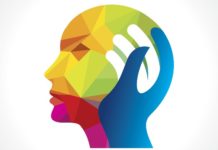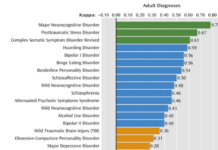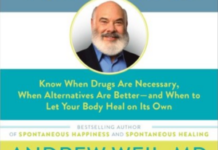World Mental Health Day
In this piece written in honor of World Mental Health Day, Peter Kinderman emphasizes the importance of challenging the biomedical model of mental health and paying...
“Alternative Therapies Should Be Considered Before Antipsychotics for Children”
The official voice of the American Psychiatric Association covers the short and long term side-effects of antipsychotics and promotes the use of therapeutic alternatives...
We Need Ecstasy and Cocaine in Place of Prozac and Xanax
From Aeon: While psychiatric drugs are often ineffective and can have serious side effects, there are many psychedelics and other illicit substances that have proven...
Consciousness: An Object Lesson
In this interview for The New York Review of Books, Riccardo Manzotti puts forth a view of existence as relative. However, he argues, the fact that...
Psychiatric Diagnosis as Subjective Opinion Rather than Science
An opinion article by a survivor of forced hospitalization writes in The Irish Times argues that the 30% reduction in involuntary detentions in Ireland...
Why You Should Never Tell Someone Who’s Grieving to Move On
In this interview for Thrive Global, psychoanalyst Robert Stolorow explains why we should not seek to heal or fix the grief we experience from trauma...
The ‘A’ Word
In this piece, Keris Myrick critiques the usage of the word "anosognosia" and reflects on its power to harm the people it is directed...
Psychiatry’s Crisis May be Unsolvable
Even if The Lancet's attempts to forge a new vision in response to the crisis of confidence in medical psychiatry work (previously reported in...
“When Pills Are the Problem”
In the context of the Silicon Valley suicides, one mother offers her story about her daughter. “It’s my premise that not only the culture of Silicon Valley, but also, almost more importantly, the nature of the remedies that are being proposed in the name of mental health counseling, are to blame in these deaths.”
Two’s a Crowd: Guattari and Deleuze
In this piece for Aeon, Edward Thornton chronicles the friendship and collaboration between the radical psychoanalyst Félix Guattari and the postmodern philosopher Gilles Deleuze.
"'How could two...
“To Stop Trans Kids from Killing Themselves, Shocking Study Says ‘Accept Them’”
“The transgender community has disproportionately high levels of depression and anxiety,” Diana Tourjee writes for Broadly. “A new study shows that trans kids who...
Why We Need to Get Better at Critiquing Psychiatric Diagnosis
In this piece for Mind Hacks, Vaughan Bell, a long-term critic of psychiatric diagnosis, points out the major flaws and logical fallacies in some of...
“Toward a Social Justice Therapy: Let’s Keep Talking”
Can psychotherapy help dismantle oppression? “Social justice focused, analytic therapy- the kind of therapy I strive to do- is one that can support the...
Normality: Unattainable Ideal and Euphemism for Boring
Our culture promotes "fitting in" through "normality" as an ultimate ideal that all "disordered" people should strive to attain, and yet at the same...
Can Mad People’s Voices Find a Place Within Academia?
-An article In Disability and Society asks why iacademic research approaches which "at first seem inviting and like they might even help to disrupt psychiatric control," so often seem to "ultimately resort to marginalising mad people’s own knowledge."
Therapeutic Alliance: Implications for Practice and Policy
In this piece for Psychiatric Services, Dr. Sandra Steingard comments on the implications of a recent meta-analysis demonstrating the positive effects of the therapeutic alliance on pharmacologic...
The Lancet Psychiatry “Diagnosis Debate” Continues
The Lancet Psychiatry's December issue includes two letters commenting on Mary Boyle and Lucy Johnstone's article, "Alternatives to psychiatric diagnosis," along with a new...
Webinar Discussion – Rethinking Madness
A free recording of last week's webinar anchored to Phil Borges' Crazywise, a documentary exploring alternative approaches to mental health, is now available. Over 4,000 people...
Dr. Andrew Weil Says We’re Taking Too Many Medicines
From The New York Times: According to Dr. Andrew Weil, who is best known for popularizing the concept of integrative medicine, the problem of overmedication...
Psychiatry After Postmodernism
“If language is inherently unstable, then how can we hope to diagnose illness accurately?” asks psychiatrist Mark Salter in an article for iai news. “Naming things, abstract or concrete, is a form of categorization,” but, he adds, “it is important to remember that our categories say more about the categorizer than the categorized.”
Depression, Stigma, and our Toxic Culture
From Medium: Often after the suicide of a public figure, there is an increase in articles published attempting to destigmatize depression by categorizing it as...
The Touch of Madness
In this piece for Pacific Standard, David Dobbs recounts the story of Nev Jones, a psychologist with lived experience who is working to change the...
10 Life Lessons I Learned as a Psychiatric Nurse and Patient
In this piece for Wake Up World, Cortland Pfeffer shares 10 life lessons he learned from his experience as a psychiatric patient, a recovering...
What Is “Normal” Anyway?
From Scientific American: Although "normal" technically means average or typical, both researchers and the general public often view normality as a standard we should all...
Your Psychiatrist Might be Wrong
From Pakistan Today: Psychiatry may lack scientific objectivity in comparison with other fields of medicine.
"The mind sciences – psychology or psychiatry – have always been...
























